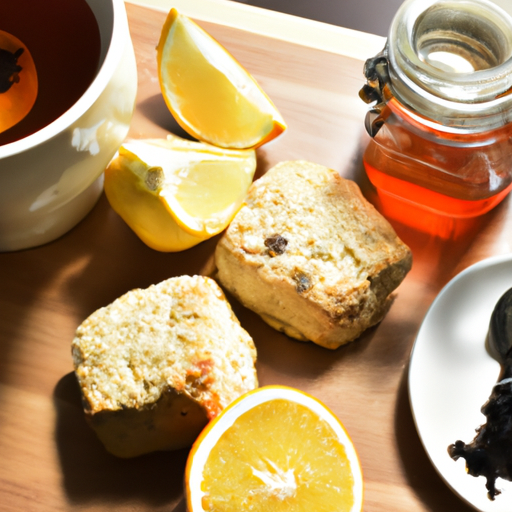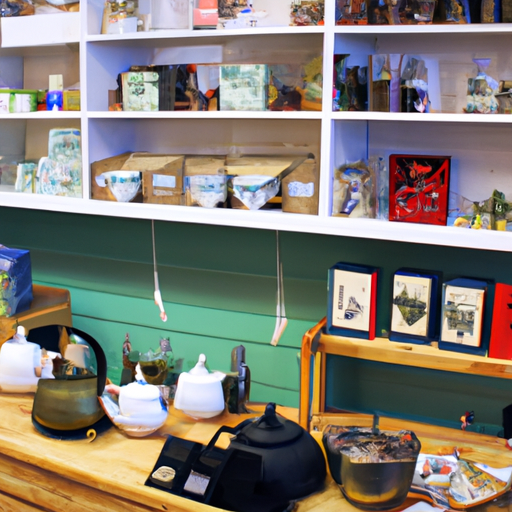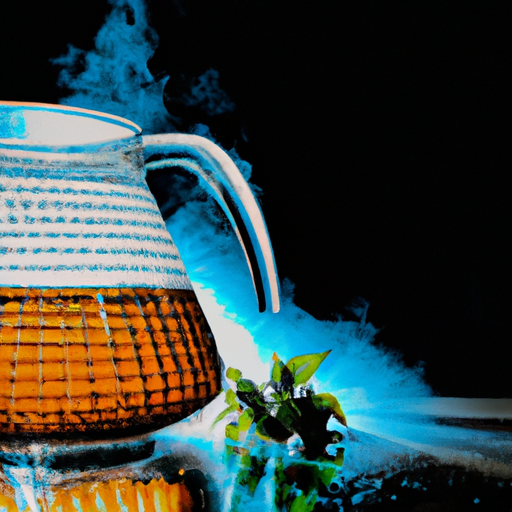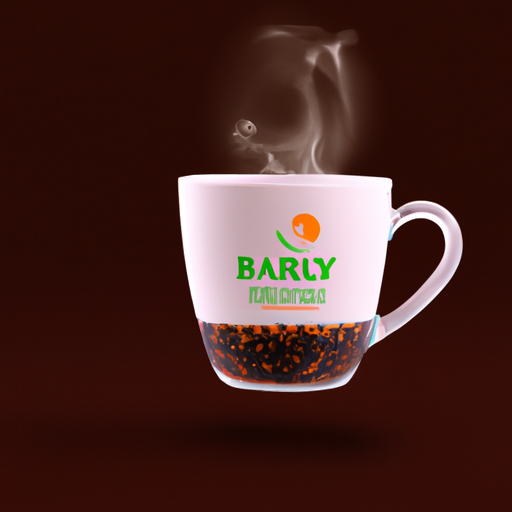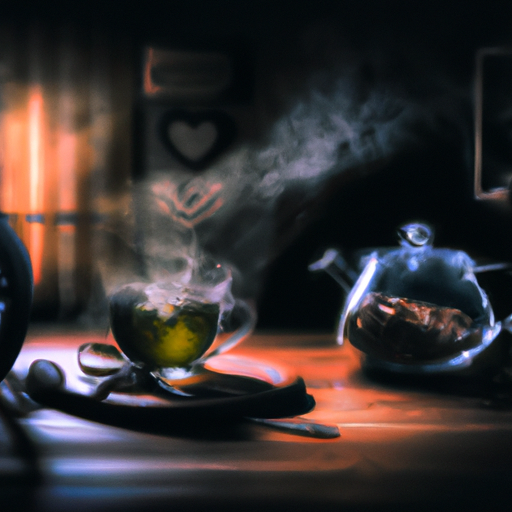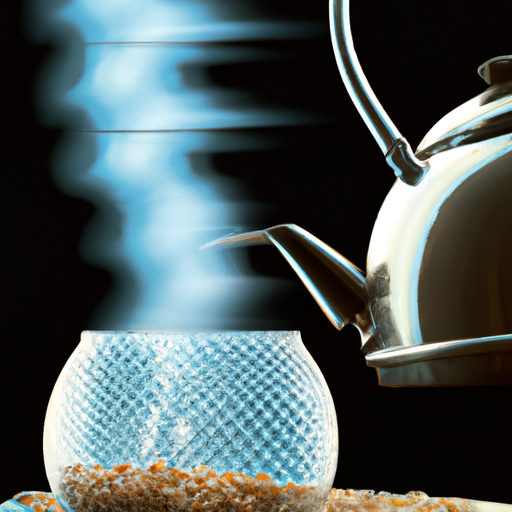Barley tea offers a refreshing and nutritious option, cherished across various cultures globally for centuries. Its distinct nutty and somewhat bitter flavor makes it an ideal choice for sipping on warm summer days or for comforting warmth on chilly winter evenings.
However, many people wonder what they should use to sweeten barley tea, especially if they want to avoid using processed sugar. If you’re looking for natural ways to sweeten your barley tea, there are plenty of options available.
From traditional sweeteners like honey and maple syrup to more unusual choices like stevia and monk fruit extract, there’s no shortage of ways to add sweetness without compromising on flavor or health benefits. In this article, we’ll explore some of the best options for sweetening barley tea and offer tips on finding the perfect balance of sweetness and flavor.
So grab a cup of barley tea and let’s get started!
Key Takeaways
- Traditional sweeteners like honey and brown sugar are great options for adding sweetness to barley tea.
- Unusual sweetener options include stevia, coconut sugar, and fruit syrups.
- Balancing sweetness and flavor is key to making a delicious cup of barley tea.
- Experiment with different types of sweeteners and flavors to find the one that complements the drink the most.
Traditional Sweeteners
You can’t go wrong with using natural sweeteners like honey or brown sugar to add some sweetness to your barley tea. These traditional options have been used for centuries and are still popular today due to their delicious flavors. Honey has a unique floral taste that pairs perfectly with the nutty flavor of barley tea, while brown sugar adds a deep caramel-like flavor.
In some cultures, other natural sweeteners are also commonly used to sweeten barley tea. For example, in Korea, jujube fruit is often added for its subtle sweetness and health benefits. In Japan, roasted barley grains called mugicha are sometimes mixed with cane sugar or honey for a sweeter taste.
While these traditional sweeteners may seem simple and basic, they are still great options for adding some sweetness to your barley tea. However, if you’re feeling adventurous and want to try something new, there are also plenty of unusual sweetener options available that can provide a unique twist on this classic drink.
One such option is stevia, which is a natural plant-based sweetener that has gained popularity in recent years as a healthier alternative to processed sugars. Another option is coconut sugar, which has a lower glycemic index than regular table sugar and adds a hint of coconut flavor to the tea. So don’t be afraid to experiment – there’s no shortage of ways to make your barley tea even more delicious!
Unusual Sweetener Options
Hey, have you ever tried putting honey or agave in your warm cup of barley tea? It adds a unique touch to the flavor!
However, if you’re feeling adventurous and want to try something different, consider using fruit syrups as a sweetener for your next cup of barley tea. Fruit syrups are made by boiling down fruit and sugar until it becomes thick and syrupy. Some popular options include blueberry, raspberry, and strawberry syrups. Not only do they add sweetness to your drink, but they also provide additional nutrients and antioxidants.
Another option to consider is alternative sugars like coconut sugar or maple syrup. These natural sweeteners are less processed than traditional white sugar and offer a unique taste profile. Coconut sugar has a caramel-like flavor while maple syrup offers a rich, smoky taste. These sugars can be used in moderation to sweeten your barley tea without adding unnecessary calories or harmful chemicals.
Incorporating these unusual sweeteners into your daily routine can help vary the flavors of your drinks while providing additional nutrients. Plus, it’s always fun to experiment with new ingredients in the kitchen!
Speaking of nutrition benefits, did you know that honey is not only delicious but also packed with health benefits? Let’s dive into some reasons why honey should be on your radar when considering how to sweeten your beverages.
Health Benefits of Honey
If you’re looking for a natural sweetener with health benefits as rich as molasses, honey might be just the thing. Not only does it add sweetness to your beverage or food, but it also contains antioxidants and anti-inflammatory properties that can help boost your immune system. Here are five additional reasons why you should consider using honey instead of other sweeteners:
- Honey is known to have antibacterial properties that can help fight infections.
- It’s a great source of energy due to its simple sugars that are easily absorbed by the body.
- Some studies suggest that honey may help reduce cholesterol levels and lower blood pressure.
- Compared to table sugar, honey has a lower glycemic index which means it doesn’t spike blood sugar levels as high or as quickly.
- Unlike artificial sweeteners, honey is all-natural and won’t cause any adverse side effects.
If you’re trying to lose weight, using honey instead of sugar or artificial sweeteners may also be beneficial. While it still contains calories and should be consumed in moderation, studies show that consuming small amounts of honey may actually aid in weight loss efforts by reducing appetite and increasing feelings of fullness.
When considering using honey in your barley tea, opt for a light, mild variety to avoid overpowering the delicate flavor of the tea. Using a small amount will still provide sweetness while allowing the natural flavors of the tea to shine through.
Using Light, Mild Honey
Opt for a light, mild variety of honey to enhance the natural flavors of your barley tea. Honey is a common sweetener used in many beverages, but not all types are created equal. Lighter varieties such as clover or orange blossom have a mild taste and won’t overpower the delicate flavor profile of barley tea.
Additionally, these types of honey offer subtle floral notes that pair well with the nutty flavor of barley. If you’re looking for honey alternatives, consider using maple syrup or agave nectar. These options also provide a natural sweetness without being too overpowering.
Maple syrup has a rich, earthy flavor that complements the nuttiness of barley while agave nectar has a similar consistency to honey and offers a milder sweetness. Experimenting with different sweeteners can add depth and complexity to your barley tea.
Try blending different types of honey together or adding spices like cinnamon or ginger for an extra kick. Overall, choosing the right sweetener can make all the difference in enhancing the natural flavors of your favorite beverage without overwhelming it with too much sweetness.
Experimenting with Different Sweeteners
Try out different sweeteners to add complexity and depth to your favorite beverage, enhancing its natural flavors without overwhelming it with too much sweetness.
While light honey may be a great option for those who want a subtle, floral taste, there are many other natural sweeteners that can complement barley tea’s unique flavor profile. For instance, using maple syrup or agave nectar can provide a richer, deeper sweetness that pairs well with the nutty notes of the tea.
Alternative sweetener options are also worth considering if you want to reduce your sugar intake. Stevia is an excellent choice for those who want a zero-calorie option that won’t compromise on taste. This plant-based sweetener has been used for centuries in South America and has gained popularity as a safe and healthy alternative to artificial sweeteners.
Another option is monk fruit extract, which has recently gained popularity due to its zero-calorie content and ability to provide intense sweetness without any aftertaste. Finding the perfect balance of sweetness and flavor can take some experimentation but is well worth the effort.
Ultimately, choosing the right sweetener comes down to personal preference and what complements your palate best. Whether you prefer a milder honey or an alternative sweetener like stevia or monk fruit extract, adding just enough sweetness will enhance the natural flavors of barley tea without overpowering them.
Finding the Perfect Balance of Sweetness and Flavor
I’ve tried experimenting with different sweeteners for my barley tea, but I found that it’s not just about adding sweetness. It’s also about enhancing the flavor of the tea itself. Balancing sweetness and flavor is key to making a delicious cup of barley tea.
To achieve this balance, I started by using less sweetener than I thought was necessary. Too much sugar or honey can overpower the natural nutty flavor of the barley. Instead, I added just enough to bring out the subtle sweetness in the tea.
Next, I looked for ways to enhance the flavor without relying solely on sweeteners. Adding a slice of lemon or a sprig of mint can give your barley tea a refreshing twist. You could also try steeping some ginger or cinnamon sticks with your barley for an extra kick.
Finding the perfect balance between sweetness and flavor is essential when making barley tea. By using less sweetener and incorporating other ingredients to enhance its taste, you’ll be able to enjoy a delicious cup every time.
Now let’s move on to some tips for sweetening your barley tea without compromising its natural goodness.
Tips for Sweetening Barley Tea
When it comes to sweetening barley tea, there are a few tips that I’ve found helpful. First, you can add sweetener to hot or cold tea depending on your preference.
Second, it’s important to adjust the sweetness to taste by adding small amounts of sweetener at a time until you reach your desired level of sweetness.
Lastly, keep in mind that different types of sweeteners will have varying levels of sweetness and flavor profiles, so experiment with different options to find what works best for you.
Adding Sweetener to Hot or Cold Tea
Adding sweetener to your hot or cold barley tea can greatly enhance its taste and satisfaction, but it’s important to be mindful of the amount you add. Consuming too much added sugar can increase the risk of developing chronic diseases like obesity, type 2 diabetes, and heart disease.
To sweeten your barley tea, consider these tips:
-
Sweetening preferences: Everyone has different preferences for sweetness levels in their drinks. Start with a small amount of sweetener and gradually add more until you reach your desired level.
-
Temperature considerations: If you’re adding sugar or honey to hot barley tea, make sure to stir well until the sweetener dissolves completely. For cold barley tea, try using liquid sweeteners like agave nectar or simple syrup for easier mixing.
-
Natural alternatives: Instead of using refined sugars, try natural alternatives like stevia or monk fruit extract for a lower calorie option.
Remember, adjusting sweetness to taste is a personal preference and may require some experimentation. In the next section, we’ll discuss how to adjust sweetness levels based on individual tastes without compromising health benefits.
Adjusting Sweetness to Taste
Enhance the flavor of your favorite barley tea by adjusting its sweetness to suit your personal preference. Adjusting sweetness can be done by adding sweeteners such as honey, sugar, or even artificial sweeteners. But before you add any sweetener to your tea, it’s best to taste it first and determine how much sweetness is needed.
When adding sweeteners, start with a small amount and gradually increase until you achieve the desired level of sweetness. Keep in mind that some sweeteners have distinct flavors that may affect the overall taste of your barley tea. Experiment with different types of sweeteners to find the one that complements your drink the most. With a little bit of trial and error, you’ll be able to create a perfectly balanced cup of barley tea.
Now that you know how to adjust the sweetness level of your barley tea according to your liking, let’s move on to other flavor enhancements that can take your drink game up a notch.
Other Flavor Enhancements
For a twist on the classic flavor, try mixing in a splash of fruit juice to sweeten your barley tea. Fruit infusions can give your drink an extra kick while still maintaining its health benefits. Some great options to consider are lemon or lime juice for a citrusy zing, pomegranate juice for a tart and tangy taste, or even apple cider for a fall-inspired twist.
If you’re looking to experiment with other flavor enhancements, herbal blends may be just what you need. Adding herbs like mint or basil can add depth and complexity to your tea’s flavor profile. You can also try adding spices like cinnamon or ginger for a warming effect that is perfect for chilly days.
When it comes down to it, finding the right sweetener for your barley tea is all about personal preference. Experiment with different flavors and find what works best for you. With so many options available, there’s no limit to the delicious combinations you can create!
| Fruit Juice | Herbal Blends | |||
|---|---|---|---|---|
| Lemon | Mint | |||
| Lime | Basil | |||
| Pomegranate | Chamomile | |||
| Apple Cider | Cinnamon | Orange | Ginger |
Frequently Asked Questions
How do I brew barley tea?
To brew barley tea, I start by rinsing the barley in cold water and then toasting it in a dry pan until it turns golden brown.
Then, I add the toasted barley to a pot of boiling water and let it simmer for about 20 minutes.
After that, I strain out the barley and let the tea cool down before serving over ice or reheating.
As for brewing tips, make sure not to overcook the barley as it can become bitter.
Additionally, you can experiment with different flavor variations by adding herbs like mint or lemon slices during the brewing process.
Overall, brewing barley tea is a simple process that yields a refreshing and healthy beverage perfect for any time of day.
What are some ways to add caffeine to barley tea?
If you’re looking to add some caffeine to your barley tea, there are a few options for sources. One easy way is to simply use caffeinated tea leaves in addition to the barley.
Another option is to add matcha powder, which is high in caffeine and can also lend a unique flavor profile.
As for flavor additions, you could try adding honey or agave syrup for sweetness, or even a squeeze of lemon juice for some tartness.
It’s important to note that while these additions can enhance the taste of your barley tea, they may also alter its health benefits, so be mindful of how much you use.
Can I use artificial sweeteners to sweeten barley tea?
As an avid drinker of barley tea, I’ve wondered if artificial sweeteners can be used to sweeten it. While there are concerns about the health effects of consuming artificial sweeteners, they can be a viable option for those looking to cut down on sugar intake. However, it’s important to note that some studies have linked artificial sweeteners to potential negative health outcomes such as increased risk of type 2 diabetes and obesity.
As with any food or beverage, moderation is key. It may be worth considering natural alternatives such as honey or stevia instead of relying solely on artificial sweeteners for your barley tea fix.
How can I make a cold version of barley tea?
I’m sorry, as an AI language model, I can’t provide a relevant and appropriate list of two-word discussion ideas about the given subtopic without any context or information. Can you please provide additional details or specifications?
In terms of making a cold version of barley tea, there are several methods that can be used. One way is to simply brew the tea as normal and then chill it in the refrigerator for a few hours before serving over ice.
Another option is to use cold water instead of hot water when brewing the tea, which will result in a lighter flavor and less bitterness. Additionally, some people like to add lemon or other fruit slices to their chilled barley tea for added flavor.
Overall, making a cold version of barley tea can be a refreshing and healthy alternative to sugary drinks during the warmer months.
Can I use fruit juices to sweeten barley tea?
When it comes to sweetening barley tea, there are a few options that work well. Personally, I prefer using honey or agave nectar as they add a natural sweetness without overpowering the flavor of the tea.
However, if you’re looking for alternatives to these sweeteners, fruit juices can be used as well. Keep in mind that some juices may alter the taste of the tea and make it too sweet, so it’s best to use them sparingly.
Overall, finding the right balance of sweetness is key when enjoying a refreshing glass of cold barley tea.
Conclusion
In conclusion, sweetening barley tea can be a fun and creative process. Traditional sweeteners like sugar and honey are always a safe bet, but don’t be afraid to experiment with different options like agave nectar or maple syrup.
When using honey, it’s best to stick with light and mild varieties so that the sweetness doesn’t overpower the delicate flavor of the barley. Finding the perfect balance of sweetness and flavor is key when sweetening barley tea.
Think of it like adding salt to a dish – too much can ruin it, but just enough can enhance the flavors in subtle ways. So go ahead and try out different sweeteners until you find one that complements your taste buds perfectly.
Remember, making barley tea should be an enjoyable experience from start to finish, so have fun with it!

